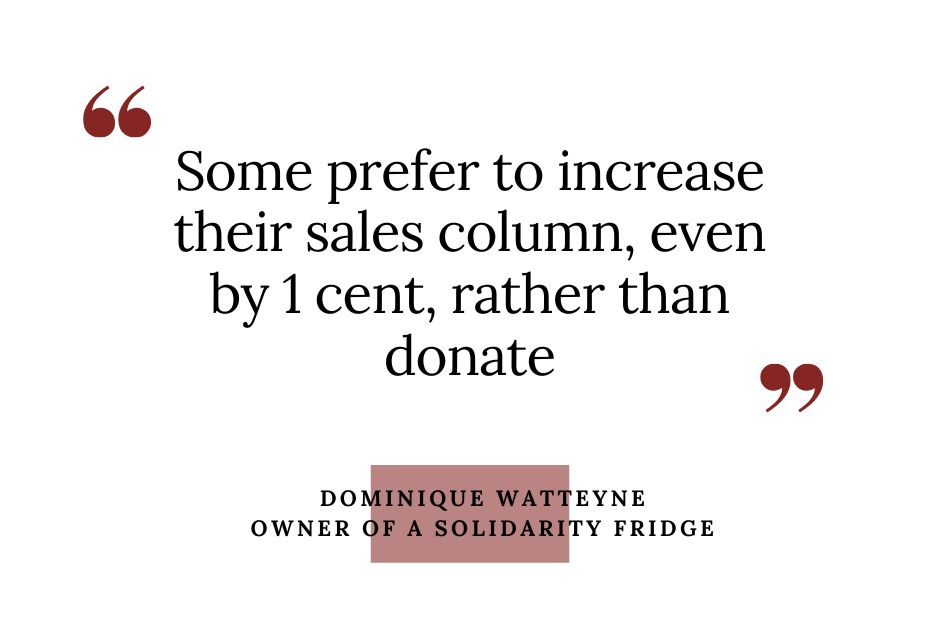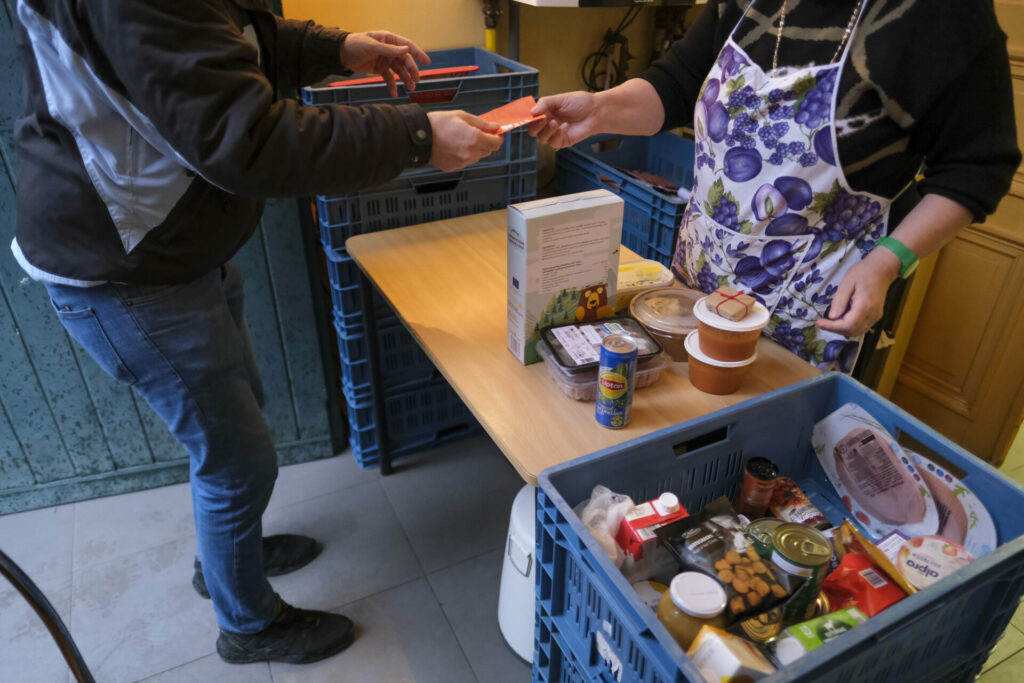As the market for unsold food continues to grow, food aid associations wonder whether the increasing competition is at the detriment of those most in need, L'Avenir reports.
Companies such as Too Good To Go or Happy Hours Market have made it their mission to end food waste. However, this has provided shops that sell food with a manner to get rid of their excess food while making money, which is not often the case when food is donated to food banks.
Last month, food banks announced that while the number of people applying for food has increased (+18.2%), donations were insufficient and only increased by +3.6%. Subsequently, food banks were only able to provide four meals per person per week, compared to five a year earlier.
They aim to make money
An association, the Federation of Food Banks, referred to the increased popularity of reselling unsold food as a "threat", without being able to gauge the precise impact. "We are interested in the same products." They also called into question the ethical side: "Their aim is to make money."
Frederick De Gryse, Director of Vincent de Paul Belgium, an organisation which assists vulnerable people with food parcels, explained that the private initiatives "add difficulty to difficulty" of operations, as food supply is decreasing.
 However, Dominique Watteyne, who runs two solidarity fridges in Ixelles, told L'Avenir that she differentiates two models of the reselling initiatives: "Too Good To Go baskets, if they are the same products, are only small quantities – for now. The money is for the shop, which gives a percentage to the app," she said. "It's not the same thing as buying back unsold goods - our unsold goods - to resell them," she commented, referring to Happy Hours Market.
However, Dominique Watteyne, who runs two solidarity fridges in Ixelles, told L'Avenir that she differentiates two models of the reselling initiatives: "Too Good To Go baskets, if they are the same products, are only small quantities – for now. The money is for the shop, which gives a percentage to the app," she said. "It's not the same thing as buying back unsold goods - our unsold goods - to resell them," she commented, referring to Happy Hours Market.
Happy Hours Market has been the subject of controversy for food bank associations, especially as the start-up received funding at a political level. "Some [shops] prefer to increase their sales column, even by 1 cent, rather than donate."
Does not benefit the disadvantaged
The competition is felt more in Brussels than in Wallonia, according to Adrien Arial, who worked at the Federation of Social Services (FdSS) on the procurement of associations. "A Walloon commune will often have more shops than associations. In Saint-Gilles, there are six associations for two operable shops. And Brussels is the testing ground for these applications."
Moreover, says Jean-Claude Mantez (VIVReS) told L'Avenir that the applications "do not benefit the most disadvantaged, because 50% of them cannot afford it." Another association also referred to the digital barrier of using the apps.
The associations fear for the future, as the private players will only continue to develop, stated Arial, "if only because of the European zero waste framework for 2030."
Related News
Ariel stated that it is essential for the voluntary and private sectors to be in communication with one another.
"The fresh food from the supermarkets must remain for the associations, for logistical reasons: we don't have many supply solutions, nor financial support," he said. However, industries that are not possible for the non-profit sector to utilise, such as farmers, and the hotel and catering industry, would be ideal for start-ups.
Alongside increased communication, the voluntary field also pleads for tax incentives to motivate the donation of unsold food items.
Watteyne mentioned one example of an independently owned Delhaize owner who refused to donate unsold goods: "I am independent, I don't have time to make VAT lists! As long as it's 6%, it won't work." Arial commented that for this reason, many managers would rather destroy unsold items or attempt to resell them at lower prices.

